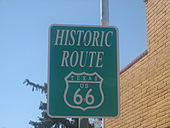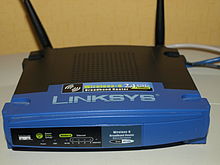I have always used both "root" as in route 66 and "rooter" as in the networking device. The latter has gotten me funny looks often, however I could not bring myself to accept the inconsistency. Today I heard "rowt" used for a path of movement by a radio presenter. Which is correct?
11 Answers

Route as in Route66 is pronounced root.

A Router puts packets on a route and so is pronounced the same as the road, ie rooter.

A rout is a disorderly retreat. And a router does the same to wood chips, so is pronounced rowter
-
7Martin does it that way, people in some other locations do it in another way. This does not mean one is right and the other wrong.– GEdgarCommented Oct 8, 2011 at 18:32
-
7In many North American dialects, including that of the Inland North, route and rout [ɹaʊt] are homophones rhyming with shout; router [ˈɹaʊɾɚ] rhymes with shouter; the root [ɹʊt] in the ground rhymes with foot and soot, just as in put and hood; but to root [ɹuːt] for one’s home team rhymes with shoot, which means that only a person who’s doing that sort of cheering would be a rooter [ˈɹuːɾɚ]. And roof is [ɹʊf], rhyming with hoof, not with proof [pʰɹuf] or prove [pʰɹuːv]. And yet, rut is [ɹʌt].– tchrist ♦Commented Jan 8, 2012 at 17:01
-
1Both cases are acceptable English, it simply depends on what dialect you speak, as many of the other answers point out. Commented Jan 26, 2012 at 18:39
-
12Living in many places in the US, and dealing with networking equipment in all of them, I've always, always heard rowter (rhymes with "shouter") for the networking equipment. If I said "rooter" they'd wonder what I was talking about and if the toilet was stopped up. Commented Oct 20, 2012 at 7:07
-
3It would be great if this answer were correct, because it at least presents some consistent rules. It also explains why a cutting router is pronounced router instead of rooter. But this answer doesn't give a hint as to why a road would be pronounced root, and unfortunately the electronic device is, in American English, always pronounced router, so the middle part is just wrong.– feetwetCommented Dec 12, 2016 at 15:27
-
Be aware that root is /rʊt/ in much a America, so what you have there doesn’t make much sense to such a person. You mean /ru:t/, which is entirely different from /rʊt/.– tchrist ♦Commented Oct 20, 2012 at 8:53
In my local dialect (Toronto, Canada), it is /ruːt/ for a roadway, and /raʊt/ (but that's very approximate; see Canadian raising ) for the act of specifying a path (and rowter for the computer networking device)
-
1Exactly. As a verb, root is to grow roots or to dig/search (as in to "root around" – what a pig does). Rowt is the act of deciding a route (as in to "route around the enemy"), and so therefore a rowter is a device which routes. I learned to speak in Northern Virginia, incidentally. Commented Sep 28, 2016 at 16:46
-
1I probably should have said "route around the obstacle" or something, so as to avoid confusion with "rout", which of course is also pronounced rowt. Too late to edit... Commented Sep 28, 2016 at 16:53
-
1Note I was referring to the networking device "router" above. Also, I would argue the woodworking tool is a rowter for the same reason: it cuts channels, grooves, etc, which are aptly "routes". Commented Sep 28, 2016 at 17:00
-
Editing in IPA here doesn't work very well with how I originally wrote the comment. It should show the actual Canadian-raised dipthong and the corresponding pronunciation for "router", but I don't know how to write these. But yes, we do pronounce the networking device and the woodworking tool the same way here. Commented Apr 12, 2023 at 22:01
It's a question of dialects. In the UK, it is pronounced as a homonym to root, as already been addressed. In America, it seems that those that pronounce it as a homonym to root are more concentrated on the east coast, as can be seen in a map (link below) visualizing the results of the Harvard Dialect Survey.
In a study of American dialects (link below), Stephanie Nicole Hedges finds that the probability to pronounce "route" as rhyming with "out" is 0.5 in New England, New York, and the Mid-Atlantic States, while it is 0.8 elsewhere in the USA.
Sources
US Midwest: I pronounce the noun 'root' when it's used to name a road ("Route 66"). If I am asking what roads you will take to get to Chicago, however, I ask, "What 'rowt' will you be taking?" And I might respond to a similar question by saying "The Triple-A 'rowted' me through La Crosse."
And the box that controls your internet traffic is a 'rowter'.
So 'root' (rhymes with "hoot") is used only as a "proper noun", and 'rowt' is used everywhere else.
(I suspect that the special treatment of named roads with "root" is due in large part to the TV show "Route 66" (1960-64), and the earlier (1946) song by the same name. This pronunciation permeated US culture in the 50s and 60s.)
-
3In my little part of America, your last paragraph is spot-on. "Root" for the name of a road is only used for Route 66. All other roads, e.g. Route 1 are pronounced "Rowt" 1. Commented Jul 21, 2017 at 20:59
In the UK, route is pronounced /ru:t/, rhyming with root. On the other hand, the pronunciation /raʊt/, rhyming with shout, is rout, meaning, among many other things, various kinds of gatherings of people (as a noun) and defeat (as a verb).
-
Note that root /rʊt/ rhymes with foot /fʊt/ in many places in America.– tchrist ♦Commented Oct 20, 2012 at 8:51
In my idiolect, a roadway is a "root," the communications device is a "rowter," and one "rowts" cables and things to where they need to go.
Seems like the pronunciation indicates whether you mean noun or verb.
-
Why would you say it is a root, when root is /rʊt/ for many of us?– tchrist ♦Commented Oct 20, 2012 at 8:51
-
This is what I don't understand. A network router is so called because it routes data packets between nodes on the network. If you have a "rowt" to work it is logical to refer to the network device as a "rowter". If you have a "root" to work I would have thought you would have a network "rooter" when you got there.– BoldBenCommented May 5, 2019 at 18:24
-
This is how it works in my head the noun rhymes with boot, the verb rhymes with out. @tchrist I've never heard someone pronounce root (like those of a tree or plant) in a way that rhymes with foot or put. I've only ever heard "root" in a way that rhymes with fruit, boot, shoot, or toot. What regions contain the "us" that pronounce it /rʊt/?– McHobbesCommented Feb 19, 2021 at 17:35
-
@McHobbes Oh it's quite common. My own idiolect originates in the rural (white) southern Wisconsin of more than half a century ago–it’s also in Iowa—but in fact I noted it just yesterday on the news from a (black) speaker from the American South; I had a (white) dentist in Texas who had it even. I don’t know a dialectology survey that includes this, unfortunately. It seems to be found in speakers who put /ʊ/ in all of roof, hoof, foot, soot, root, look, book, hook, rook, wool, pull. I have /u/ in all shoot, boot, coot, coon, room, moon, loot, loon, loom, womb, tomb, lure, tour, pool.– tchrist ♦Commented Feb 19, 2021 at 23:36
Today, the pronunciation of route as /raut/ (rhyming with out) is more prevalent in the USA.
But the two pronunciations are not equally distributed in the USA. In a study of American dialects, Stephanie Nicole Hedges found that the probability to pronounce route as rhyming with out is 0.5 in New England, New York, and the Mid-Atlantic States, while it is 0.8 elsewhere in the USA. This is reflected in the map from the Harvard Dialect Survey given in the answer by Holly Rayl.
If you consider other factors such as people living in urban or rural areas, age, sex, and education the distribution becomes even more complex: women, older people, people in urban areas, and people with higher education tend to prefer the pronunciation of route as /ru:t/ (rhyming with boot), while men, teenagers, people in rural areas, and people with lower education tend to prefer the pronunciation of route as /raut/ (rhyming with *out), at least in Canada.
This may correspond to the finding that in Britain the pronunciation of route as /raut/ (rhyming with out) is the one common among the British army.
Historically, the pronunciation with a diphthong has been recorded since the second half of the 18th century and was at that time the preferred pronunciation of some, but not all of the commentators. It has disappeared from standard British English in the course of the 19th century.
Route, as in a way or course to be taken, is pronounced 'root' in non American English as it is in French from which it is taken. The verb, to send down a particular way, is the same. Hence the computing router which directs signals down particular ways, would be pronounced rooter. Except that the influence of Americanisms is so strong that I often hear 'rowter' here in NZ and on British TV programmes (not programs).
Rout (no 'e'), rhyming with about, means to force a disorderly retreat of beaten troops. It also means 'to force out as if by digging' which is where the power tool comes from. The words are NOT related and are pronounced differently.
Unfortunately this gives us one of the inconsistencies of English in that router (from route) would be pronounced 'rooter' and router (from rout) is 'rowter'. The Americans have put in a consistency in pronouncing everything rowt and rowter, non-Americans have maintained the original pronunciations and pronounce them differently with a spelling inconsistency.
Now, which is actually correct? Because I was brung up with Non-American English I would have to say root and rooter.
-
1I hate to tell you this, but "Route 66" is pronounced as "root". Commented Oct 6, 2020 at 0:44
-
Yup I know and I stand corrected. However it possibly emphasises that root is the better (I hesitate to say correct) pronunciation. It also suggests that Americans may have changed as "rowt" seems to be fairly universal in American now.– kiwi-ianCommented Oct 7, 2020 at 1:07
-
@HotLicks Even though you may find this a [hut] — and I honestly don’t mean to [pʰɑʊ̯t], nor [pʰʊɫ] the [wʊɫ] over your eyes with some unkind [kʰʌt] — but let me [pʰʊt] it to you this way: As a general [ɻuə̯ɫ] a rural [ɻɑʊ̯t] does ɴᴏᴛ [ɻɑɪ̯m] with [ɻʊt] where I come [fɻʷʌm].– tchrist ♦Commented Feb 20, 2021 at 0:45
-
@tchrist - Where I come from people don't generally speak Greek. Commented Feb 20, 2021 at 1:00
Here in Virginia, route can be pronounced root or rowt, but a rowter is for computers, whereas rooter would refer only to your pig.
If you talking about a plant’s roots or the roots of your hair and so on, it should be the only time the “root” pronunciation is root is used.
That’s because if you say “root” for route, it just confuses things and doesn't make any sense to me. A router is a router, said as it’s spelled.
-
2Router is spelled like ar-oh-yoo-tee-ee-ar, but you certainly don't pronounce it like that. The "root-" pronunciation isn't only for plants or hair roots. Both pronunciations are used in America, but only root in the UK, as you'll see from the other answers here, from people who learned English in different parts of the world.– HugoCommented May 5, 2012 at 7:47
